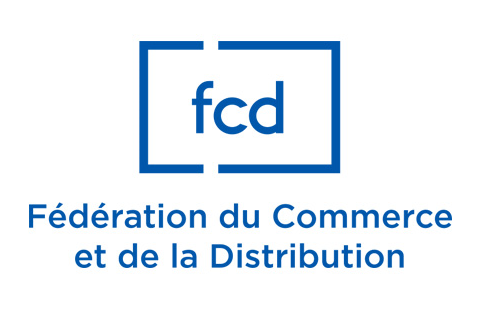News
European and French experts consulted too late on GMO/NGTs ?
While the European Union has been discussing GMO deregulation since July 2023, European and French scientific experts have been and continue to be quite ignored. In France, although the opinion of the Anses was required as early as 2021, its publication took place in March 2024, a month after the vote by MEPs. The latter decided to consult their european experts after the vote, rather than before. However, in order to deliver its opinion in July 2024, the EFSA will make an exception to its procedure: it will not organize a public consultation…

On February 7, 2024, following the European Parliament’s vote on its own version of a regulatory text on GMOs obtained through new techniques (GMOs/NGTs), MEP Jessica Polfjärd hailed “a historic day when the European Parliament has voted in favour of science, of food safety and in support of European farmers“. With this statement, the MEP concealed the fact that European and French experts had, on the contrary, seen their scientific opinions ignored, or even not solicited.
The Commission will not consult its own european experts…
To produce its proposal for the deregulation of GMOs in July 2023, the Commission states that it relied on several opinions from the European Food Safety Authority (EFSA)1, which recommended a risk assessment. Despite these opinions, the Commission will opt for no pre-market risk assessment for most GMOs/NGTs (those classified as “category 1”). Above all, to declare a plant an NGT (and no longer a GMO), the Commission has proposed a list of five criteria which it has not previously submitted to the EFSA for their scientific relevance or plausibility. As confirmed by EFSA, “the criteria proposed by the European Commission specifically for its proposal for NGT Cat 1 were developed by the European Commission itself“. Questioned on January 12, 2024 by MEP Christophe Clergeau, the Commission confirmed on March 7 that it had no intention of consulting EASA on the relevance of its criteria. It stated that it had developped the criteria “based on a scientific literature analysis about the changes in plants’ genome obtained by conventional breeding methods“, adding that the opinions produced by EFSA “underpin“those criteria2.
Rather than directly questioning its experts on the scientific relevance of the criteria it is proposing, the European Commission prefers to consider that the opinions provided “underpin” these criteria. It goes even further, suggesting that French experts also support them. It states that “national agencies, including ANSES, engaged with EFSA in the context of this work, in particular through the EFSA GMO Network and the public consultations of the relevant EFSA scientific opinions“. This interpretation by the Commission is a far cry from the two opinions produced by French experts in December 2023 and March 2024.
… unlike the European Parliament, which consults them after having voted!
While the Commission explicitly refuses to consult its experts, the European Parliament did so on February 22, 2024, by issuing a mandate to the EFSA. But this mandate does not relate to the criteria themselves, but to the opinion published in December 2023 by the French experts at Anses.
The calendar is surprising, to say the least. Since July 5, 2023, the European Parliament and its Environment Committee have had on their table the deregulation proposal formulated by the European Commission with these famous scientific classification criteria. Until February 1, there was no thought of mandating EASA to find out what it thought of these criteria. On February 1st, a week after the adoption of the Environment Committee’s report and a week before the European Parliament’s plenary vote, the Chairman of the Environment Committee, Pascal Canfin, wrote to the President of the Parliament. On behalf of the Environment Committee, he asked her to mandate EFSA, not on the Commission’s criteria or the criteria modified on January 24 by the Committee he chairs, but on the opinion of the Anses’ french experts, known since December 21, 2023.
Finally, the European Parliament’s mandate will be sent to EFSA on February 22, signed by Roberta Metsola, President of the Parliament. Inf’OGM questioned the Presidency of the Parliament to find out why it had decided not to mandate EFSA before voting, not to mandate EFSA on the criteria themselves, and not to mandate EFSA on the criteria as amended by the Parliament on February 7, 2024. In response, the Presidency press office told us that EFSA’s opinion had been requested for July 2024, “considering the political calendar and the fact that the Council has not reached its position yet“. No response was received from the coordinators of any of the political groups on the Environment Committee, or from the office of P. Canfin, Chairman of the Committee.
The European experts to deliver their opinion in July 2024
On the experts’ side, an EFSA spokesperson confirmed to us that it had “received a request from the European Parliament to produce a scientific opinion on Anses’ analysis of the criteria proposed by the European Commission“. On March 18, 2024, EFSA formally accepted the mandate and replied to the Presidency of the European Parliament3. In this reply, EFSA points out that it has already adopted the principles of equivalence of certain GMO/NGT plants with conventional plants as proposed by the European Commission. Its work will therefore focus on the French experts’ opinion of these principles, as well as their opinion of the criteria themselves. On the other hand, the EFSA has already announced that its working procedure will be different from the usual ones. As the Parliament has requested a response by July 2024, “there is insufficient time to run a public consultation on the EFSA-GMO panel endorsed opinion“, as the usual procedure requires. This public consultation will therefore not take place.
EFSA is therefore working to “produce this assessment by the given deadline of July 2024“, with consultation of Anses if necessary. Anses’ second opinion, published in early March 2024, will also be considered “carefully in the context of the strong cooperation we have on our respective scientific work“. In his response to Inf’OGM, the EFSA spokesperson also clarifies that EFSA “continues to discuss the issue of NGTs with Anses and all other Member State partners in our GMO network“. A clarification implying that all member states, via their national expert committees, are aware of the reflections and considerations on the scientific aspects of the deregulation proposal.
French experts do not share the government’s analysis
When the French experts at Anses published their opinion on the criteria proposed by the European Commission, the matter caused quite a stir. Indeed, their opinion was the result of a self-mandate and was quite trenchant as it considered that these criteria had no scientific basis. However, this publication, of which the MEPs were aware, did not lead them to hear the Anses as part of their work. The European Parliament – and, before it, its Environment Committee chaired by Pascal Canfin – therefore did not hear the French experts on the lack of scientific soundness of their considerations.
In March 2024, the same experts published their opinion on the proposal as a whole, this time on a request from the French government dating back to 20214. The report, published online on March 6, 2024, was signed by the Director General of Anses on January 22, 2024. The “Biological Risk Assessment in Food” (BIORISK) committee of experts, in charge of all the expert assessment work carried out, adopted its conclusions on December 11, 2023. On February 18, 2024, Marc Fesneau stated that he did not have this report on his desk, but above all that “the Anses report is a self-mandate aiming at looking at the consequences of new genomic techniques, particularly in terms of marketing authorization“5. The report published in March 2024 on which the Minister was questioned was in fact the result of a mandate sent to Anses by the Ministry of Agriculture, via the Directorate General for Food, and by the Ministry of Ecological Transition, via the Directorate General for Risk Prevention, on January 28, 2021.
While the French government has already defended its position in the Council of Ministers in favor of the principle of deregulation, albeit with reservations about the patent issue, what do French experts think of the proposed lack of risk assessment, labeling and traceability?
In the summary of their report – which Inf’OGM will detail in a future article – the experts recommend that GMO/NGT plants should be assessed “on a case-by-case basis, taking into account both the precision of the technique used and the characteristics of the plant obtained once the genome has been modified, while also considering all the potential toxicological, nutritional, agronomic and environmental consequences of the new characteristics“. They propose a decision tree that would make it possible “to propose, depending on the case, the maintenance of the current assessment framework or a simplified or adapted assessment“, this latter to be decided according to the plant’s molecular, chemical, nutritional, agronomic and other characteristics. The principle of risk assessment has therefore not been abandoned by ANSES.
In addition to this case-by-case risk assessment, the Anses strongly recommends that post-marketing surveillance be set up “to monitor the appearance of health and environmental effects, but also to observe changes in cultivation practices associated with these plants“.
In addition to health and environmental aspects, Anses experts also highlight the issues of consumer information, intellectual property and industry concentration that may emerge. Finally, Brice Laurent, Director of Social Sciences, Economy and Society at Anses, adds that “modifying the regulation to take into account the NGTs involves societal choices, as various economic and societal impacts are also in the balance. Anses’ expert appraisal identifies all the questions that need to be asked, to ensure that the debate is as open and informed as possible“.
Since 2022, both European and French experts have issued opinions calling for a GMO/NGT risk assessment, the content of which may vary from case to case. In their view, a risk assessment is necessary, whether similar to or lighter than the current assessment requirements. This is a far cry from the European Commission’s proposal, the position defended by several member states, or the European Parliament’s vote of February 7, 2024…
- – EFSA Panel on Genetically Modified Organisms (GMO), « Scientific opinion addressing the safety assessment of plants developed using Zinc Finger Nuclease 3 and other Site-Directed Nucleases with similar function », EFSA journal, octobre 2012.
– EFSA Panel on Genetically Modified Organisms (EFSA GMO Panel), « Applicability of the EFSA Opinion on SDNs type 3 for the safety assessment of plants developed using SDNs type 1 and 2 and oligonucleotide-directed mutagenesis », EFSA journal, novembre 2020.
– EFSA Panel on Genetically Modified Organisms, « Scientific opinion addressing the safety assessment of plants developed through cisgenesis and intragenesis », EFSA journal, 16 février 2012.
– EFSA Panel on Genetically Modified Organisms (GMO), « Updated scientific opinion on plants developed through cisgenesis and intragenesis », EFSA journal, octobre 2022.
– EFSA Panel on Genetically Modified Organisms (GMO), « Statement on criteria for risk assessment of plants produced by targeted mutagenesis, cisgenesis and intragenesis », EFSA journal, octobre 2022. ↩︎ - Parlement européen, Question parlementaire – E-000100/2024(ASW), Réponse donnée par Mme Kyriakides au nom de la Commission européenne, 7 mars 2024. ↩︎
- EFSA’s question reference EFSA-Q-2024-00178. ↩︎
- Anses, « Nouvelles techniques génomiques : l’Anses appelle à une réglementation adaptée », 6 mars 2024 (in french). ↩︎
- Carinne Bécard, « Questions politiques » avec Marc Fesneau, France Inter, 18 février 2024 (in french). ↩︎













